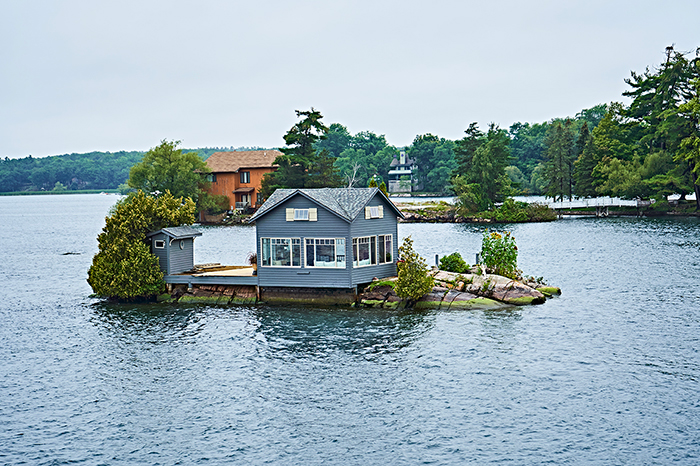4 Essential Rules of Buying Vacation Rental Properties

*Updated: 10 November, 2022
It’s easy to see why property owners choose to invest in short-term rentals rather than typical buy-to-let properties.
Renting out your property on a short-term basis can yield higher profits than long-term accommodations.
In addition, landlords who own vacation rentals are able to claim a greater amount of tax relief against their mortgage interest than those who have invested in buy-to-let.
The benefits are more than just financial. To be classed as a short-term rental in the UK, for example, your property needs to be available to book for just 210 days per annum. This leaves a good portion of the year when you can holiday there yourself!
So, how do you go about obtaining the right property to start your business? In this article, the experts at Property Solvers offer four essential rules on how to buy the perfect vacation rental property.

1. Choose Your Location Carefully
The main deciding factor for any traveler seeking accommodation is location. Firstly, you need to consider the country in which you plan to purchase.
Depending on the country, remember that there may be differences in the real estate process, including the handling of mortgages and loans, business and property taxes, planning permission, insurance, and other matters.
Next, think about your audience. Are they sun-seekers and surfers? In the UK, for instance, the south coast is ideal for this demographic. Cornwall is the most popular spot in the country for sunny holiday homes.
If you’re planning to attract hikers and adventurers, the Lake District is another extremely popular retreat in the United Kingdom. Those looking for a little culture, nightlife or retail therapy may wish to rent an apartment in London.
You should also consider your investment property’s proximity to amenities. Travelers are more attracted to locations that are not too far from shops and bars and have good transport links. Those on beach vacations won’t want to walk too far to see some sand.
The position of the property and the views it offers to your guests can also make a difference. Seascapes, rolling hills or an elegant city skyline will add far greater value to your holiday let than most other elements. Look for a property with a terrace, balcony or similar features to set yourself apart from the competition.
2. Provide Access, Health and Safety Measures
You need to make sure that your vacation rental is friendly to people with accessibility needs. After all, narrowing your audience will make your property less sought-after and may attract complaints.
Ramps, handrails and easy to use bathroom features will improve the comfort of your property for older guests or individuals with access needs. Generally, this demographic prefers single-story properties – so looking into bungalows could be a wise move.
Health and safety is an extremely important aspect. You’ll need to make sure that all appliances are regularly checked and that there is no danger of a guest injuring themself. Ensure all structural elements adhere to official building regulations.
Install and maintain fire alarms and carbon monoxide sensors in the property. Keep all security hardware up to date and sufficiently sturdy. Once you’ve attended to all of these issues, your property will not only be safer, but it will be much easier to insure!
To appeal to a wider audience consider making your short-term rental child and pet-friendly too. Why not consider installing windows with restricted opening distances, optional baby gates, handrails, and baby or pet-friendly furniture that is easy to clean?
Sofas, beds and other furnishings that sit entirely on the floor instead of being raised on legs can also prevent kids or animals from getting trapped or leaving items hidden.
3. Consider Location of Your Rental Property in Relation to Your Place of Residence
How far should your vacation rental be from your own home? At first glance, it may seem easier to stay right next door or even on-site, so you can easily handle the cleaning and maintenance and assist if there is any problem.
However, this might put off some potential renters as they may feel as though they were being watched. It may also cause you to feel stressed and as if you can never truly get away from your work.
Many property owners find it a better option to buy vacation rental property far away and handle it remotely, hiring professional cleaners, maintenance specialists and property management companies.

4. Think Business
Before you choose your property, you should first do a little research into the surrounding area. Are there other short-term rentals nearby? If so, how much do they charge? This should help you to estimate the price per night for your property.
There are peak times and quiet times for vacation rental properties. Learning about seasonality in your area will help you to calculate annual projections.
You should consider the best and worst-case scenarios in terms of rental income and expenditure. Calculate how long it might take for your business to recover if anything unexpected happens.
Once you’ve got a clear idea of how your vacation rentals will function as a business, you’ll be in a good position to start looking into short-term rental mortgages.
The Current Climate and Force Majeure Factors
When planning to buy vacation rental property, it’s important to consider social, environmental and political factors. Is it now the best time to act?
If you’re buying overseas, be sure the area you are considering will be safe for tourists. Is the region in question going through a phase of social or political instability? How are tourists likely to be treated?
What about health concerns? In light of the COVID-19 pandemic, for example, travel and tourism was heavily discouraged. This resulted in a significant loss of earnings for many vacation rental landlords.
While this should not necessarily prevent you from buying a new vacation rental property, it is important to keep those factors in mind, and plan accordingly for times of uncertainty.
Conclusion
By considering your location, your audience, accessibility, safety, ease of management, the current climate and the potential of the business as a whole, you should be able to set yourself up as a successful vacation rental owner.
If you’re looking for further tips on buying and selling houses, visit the Property Solvers website and get in touch.
Source: Ruban Selvanayagam is co-founder of Property Solvers, a sell house fast company and 28-day estate agency based in the UK and has been a private rented sector landlord for over 13 years.





![Your Monthly iGMS Roundup [February 2020]](/content/images/size/w600/wordpress/2020/02/igms-roundup-feb-2020-cover.png)

